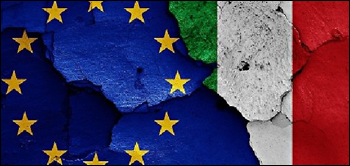
It might well be true that the meeting between Putin and Erdogan does not herald Turkey’s exit from NATO and an understanding between the two autocrats to divide the Middle East. But it is just as true that the handshake between the Russian and Turkish presidents constitutes definitive proof of the total failure of Obama and Clinton’s foreign policy in the Mediterranean and the equally total absence of any direction in foreign policy in the EU in the same area.
If the next U.S. presidential elections hinged on how much was accomplished by the outgoing president and his secretary of state outside of U.S. borders and, in particular, in Arab sections of North Africa and Asia Minor, the defeat of the Democratic candidate would be a given. The U.S. withdrawal from Iraq and the decision to progressively de-escalate political influence over the whole area has not only not ended the war begun by Bush, but has exacerbated it, extended it and made it so complicated that it will never end.
Mortality among U.S. troops has fallen to minuscule levels, but the U.S. has lost weight and credibility, going from being a factor of stability and peace to a universal factor of instability and conflict. Luckily for Clinton, American voters will vote on the basis of other criteria. But the circumstance renders the more serious question of the nonexistence of a European foreign policy, which was demonstrated by the meeting between Putin and Erdogan. The EU is not capable of filling the void left by the U.S. because it cannot develop a unified strategy since every single state, in particular France and Germany, that is, the powers that consider themselves hegemons of the Old Continent, pursue their own particular interests. Chancellor Angela Merkel worries about enlarging the influence of the German area toward the East and coaxing Erdogan’s Turkey to prevent the rush of millions of Syrian refugees toward his country. France chases her eternal dream of becoming an imperial and world power, sending troops to fight everywhere and openly aiming for the separation of Libya into two states in order to be able to control at least one of them.
It’s with regard to this scenario that Italy must decide what its position should be in the void left by the U.S. and EU and in the spaces left open by the heavy actions of Germany and France. Invoking a unified Europe in Ventotene is sacrosanct, but renouncing one’s own national interest while other countries pursue theirs is absurd.

Leave a Reply
You must be logged in to post a comment.